You may not know of a place called Highway Garden (
Flower farming in Taiwan originates in Tianwei (

PHOTOS: DEREK LEE, TAIPEI TIMES
Tianwei has earned its reputation for being at the heart of the country's flower trade and as such has beautiful gardens and more than 200 flower shops, nurseries and European-style coffee shops along the two-lane road leading to the town. Day and night, the Highway Garden (
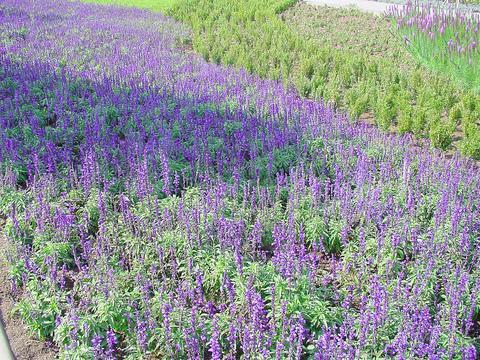
Chen Hsi-chian (陳錫堅) is a second-gene-ration flower farmer in his 40s and is the prime mover behind the Highway Garden project in Tianwei. "Most of the flower farmers in this town inherit their business either from their father or grandfather. Tianwei now grows the biggest variety and highest volume of flowers in Taiwan," Chen said. "We cultivate around 200 hectares of land to grow more than 10 million chrysanthemum plants [of different types] each year, in order to meet the needs of domestic and overseas buyers. Whatever the season, a visitor will see different kinds of flowers being grown here."
Both Lee Kun-ti (
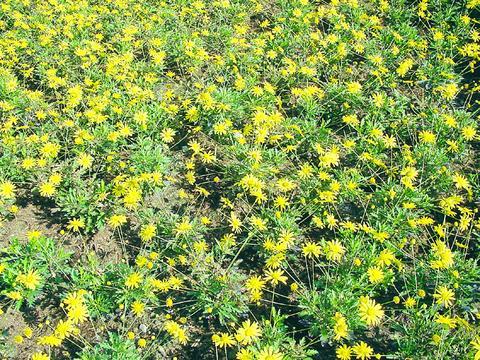
The most important reason for the success of flower growers in the area is however, beneath their feet. The thick mud brought down from mountain areas each year by a flooding Choshui River (
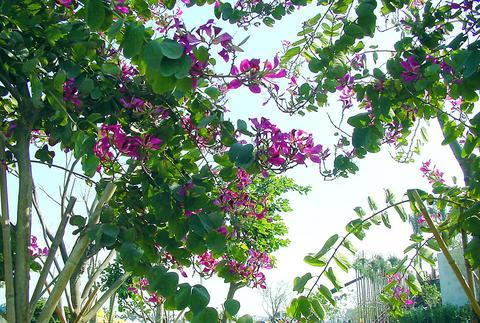
With its century-long history of flower farming, Tianwei has expanded its farming operation to approximately 300 hectares. This represents an estimated 43 percent share of Taiwan's wholesale flower market.
As such it was no surprise when Zhanghua County Magistrate Wong Chin-chu (
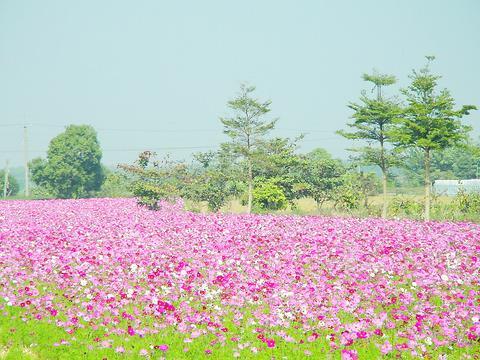
There is a good reason why the flower show is being held during the winter season. Due to the relatively cooler temperatures of around 22℃ on average from November to March in central Taiwan, the quality of the flowers is best at this time of the year. Also, the Lunar New Year holiday season -- between mid-January and mid-February, lasting about five days -- sees sales go up by three to four times the normal volume. The flower show in Hsichou from Jan. 17 to March 14 is therefore a good way of promoting sales of high quality winter flowers to the two largest public auction houses in Taiwan -- Neihu (
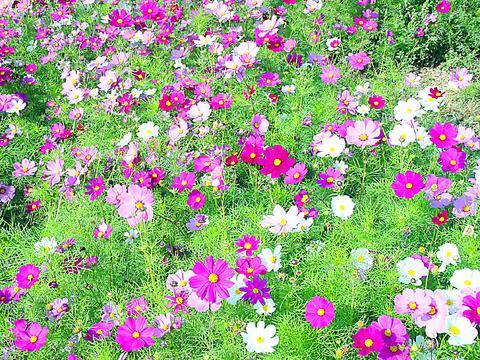
Presently, the total annual value of the flower industry in Taiwan is slightly more than NT$10 billion. Of this, more than NT$3.2 billion of business is in cut flowers, said Tom Chang (
Zhanghua County is now ambitiously committing nearly 5,000 hectares of land for flower growing in an attempt to account for 46 percent of the country's total plantation area.
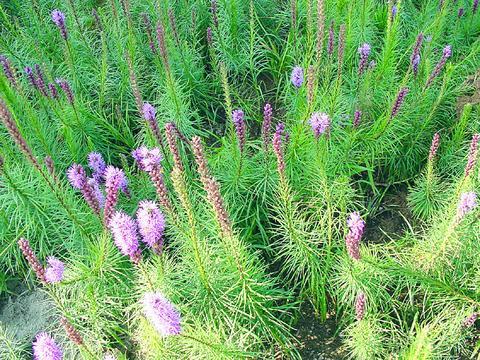
Kevin Chung (
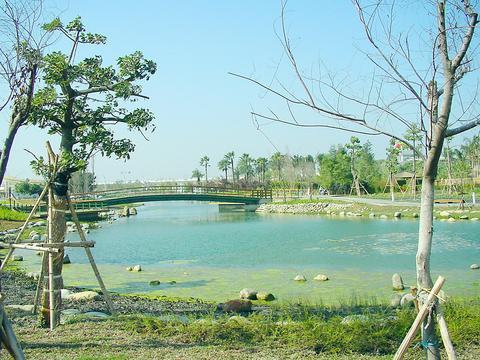
With its tropical and sub-tropical weather, Taiwanese flowers such as the Formosan moth orchard (
Chen said Taiwan's flower growers competed on level terms internationally in terms of variety, production skills, packaging and control of flower farming and the size of the Hsichou Flower Expo 2004 shows just how determined local growers are to build the country into a flower kingdom, through skilful management and plantation of tropical and sub-tropical plants and flowers. The show is a milestone for the local floral industry, which is set to grow further and perhaps even one day rival Holland.

Taiwan has next to no political engagement in Myanmar, either with the ruling military junta nor the dozens of armed groups who’ve in the last five years taken over around two-thirds of the nation’s territory in a sprawling, patchwork civil war. But early last month, the leader of one relatively minor Burmese revolutionary faction, General Nerdah Bomya, who is also an alleged war criminal, made a low key visit to Taipei, where he met with a member of President William Lai’s (賴清德) staff, a retired Taiwanese military official and several academics. “I feel like Taiwan is a good example of

March 2 to March 8 Gunfire rang out along the shore of the frontline island of Lieyu (烈嶼) on a foggy afternoon on March 7, 1987. By the time it was over, about 20 unarmed Vietnamese refugees — men, women, elderly and children — were dead. They were hastily buried, followed by decades of silence. Months later, opposition politicians and journalists tried to uncover what had happened, but conflicting accounts only deepened the confusion. One version suggested that government troops had mistakenly killed their own operatives attempting to return home from Vietnam. The military maintained that the

Before the last section of the round-the-island railway was electrified, one old blue train still chugged back and forth between Pingtung County’s Fangliao (枋寮) and Taitung (台東) stations once a day. It was so slow, was so hot (it had no air conditioning) and covered such a short distance, that the low fare still failed to attract many riders. This relic of the past was finally retired when the South Link Line was fully electrified on Dec. 23, 2020. A wave of nostalgia surrounded the termination of the Ordinary Train service, as these train carriages had been in use for decades

Lori Sepich smoked for years and sometimes skipped taking her blood pressure medicine. But she never thought she’d have a heart attack. The possibility “just wasn’t registering with me,” said the 64-year-old from Memphis, Tennessee, who suffered two of them 13 years apart. She’s far from alone. More than 60 million women in the US live with cardiovascular disease, which includes heart disease as well as stroke, heart failure and atrial fibrillation. And despite the myth that heart attacks mostly strike men, women are vulnerable too. Overall in the US, 1 in 5 women dies of cardiovascular disease each year, 37,000 of them